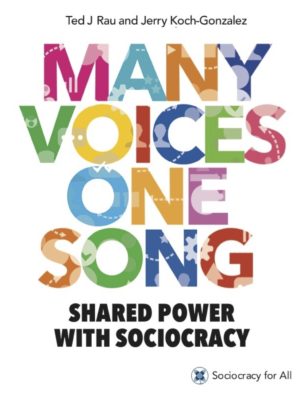Sociocracy is a governance method based on collaboration, self-organization, and distributed authority. It is designed for transparency, inclusiveness, and accountability. Democracy values freedom and equality but doesn’t have a governance structure guaranteed to ensure them. A Sociocratic Democracy uses the methods of sociocracy to achieve the values of democracy creating a practical and effective way to organize. This site is about sociocracy and the ways in which it can help democracy achieve its highest goal: freedom and equality for all, finally.
 Three Principles vs Four
There were originally three principles of sociocracy: (1) Consent to policy decisions, (2) circles arranged in a circular hierarchyA round pyramid is the term used by Ricardo Semler in Maver... More to make policy decisions, and (3) double linking between circles. The election of people to roles and responsibilities was intended to be a part of the first principle of consent.
Allocation of resources involves the allocation of human resources as… Read More . . . “Three Principles of Sociocracy”
Three Principles vs Four
There were originally three principles of sociocracy: (1) Consent to policy decisions, (2) circles arranged in a circular hierarchyA round pyramid is the term used by Ricardo Semler in Maver... More to make policy decisions, and (3) double linking between circles. The election of people to roles and responsibilities was intended to be a part of the first principle of consent.
Allocation of resources involves the allocation of human resources as… Read More . . . “Three Principles of Sociocracy”
